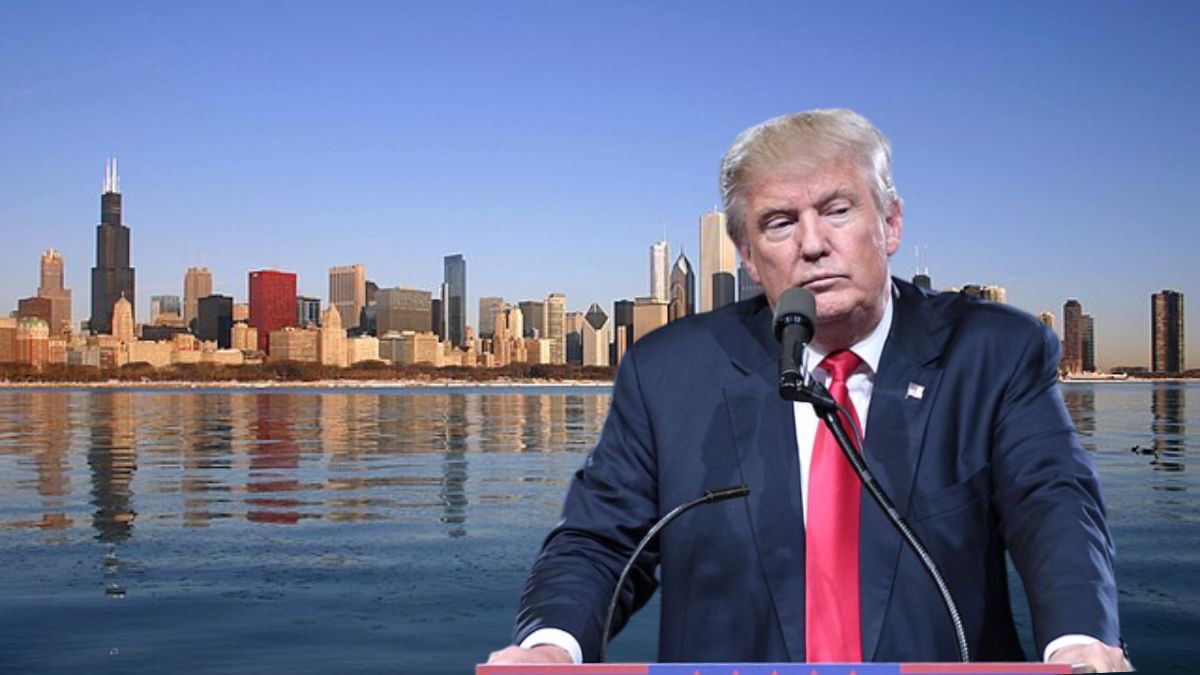In a dramatic escalation of tensions between Washington and Democratic-led states, United States President Donald Trump on Sunday (October 5, 2025) branded Chicago a “war zone” to justify deploying 300 National Guard soldiers to the city, despite fierce opposition from local officials and a growing national backlash.
The move marks a flashpoint in the Trump administration’s ongoing campaign to tackle urban crime and illegal immigration through military-style crackdowns. Critics, however, warn that the president’s actions represent an unprecedented attempt to militarise domestic law enforcement and override state authority.
How did the key actors receive the decision?
Homeland Security Secretary Kristi Noem defended the deployment during an interview with Fox News, insisting that “Chicago is a war zone” and that federal intervention was necessary to “restore order.”
But Illinois Governor J.B. Pritzker condemned the move as a deliberate provocation, accusing Republicans of “trying to create mayhem on the ground.”
“They want to create the war zone so that they can send in even more troops,” Pritzker told CNN’s State of the Union. “They need to get the heck out.”
A CBS poll released on the same day revealed a divided public, with 42% of Americans supporting the use of the National Guard in cities and 58% opposing it.
How did Trump justify his decision?
Despite the controversy, Trump has shown no signs of backing down, having earlier vowed to fight what he called a “war from within.”
He falsely claimed that “Portland is burning to the ground,” reiterating his belief that “insurrectionists” are operating across the country. His key ally, Republican House Speaker Mike Johnson, echoed the rhetoric, describing National Guard deployments in Washington as responses to a “literal war zone.”
However, Trump’s aggressive use of military power on US soil suffered a major legal setback late Saturday (October 4) when a federal court blocked troop deployment to Portland, Oregon.
What did the court say about Trump’s decision?
US District Judge Karin Immergut ruled that the president’s decision was “untethered to the facts,” stressing, “This is a nation of Constitutional law, not martial law.”
While Portland has experienced sporadic clashes between protesters and federal officers, the court found no evidence of an organised rebellion that would justify military intervention. Trump advisor Stephen Miller denounced the ruling as “legal insurrection.”
How ICE was the reason for Chicago situation?
Meanwhile, tensions in Chicago flared over the weekend after a federal officer shot a motorist allegedly armed and ramming a patrol vehicle. Earlier, Immigration and Customs Enforcement (ICE) officers fatally shot 38-year-old immigrant Silverio Villegas Gonzalez during a September 12 traffic stop, further fueling protests.
As Trump expands ICE operations across Democratic strongholds, critics warn that his “law-and-order” crusade is pushing America into an unprecedented internal confrontation, one increasingly fought not just with words, but with soldiers on city streets.
